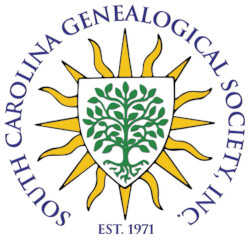I found this great article on Genealogical Societies from Donna Cox Baker.
The Genealogical Society: Revise or Demise?
Genealogy is emerging, growing, thriving. So why do we hear rumors of the impending death of the local genealogical society? Is it “revise or demise” for these once-vital pillars of family history research? And what is the GEG’s obligation to local organizations?
The health of genealogical societies
I am heading up a genealogy project that has put me in contact with many societies around Alabama. Most of them tell me they are in decline — some nearly gone. Fewer and fewer people come to meetings. No one volunteers anymore, they tell me. I suspect this is true in many states.
Up until about a year ago, I had not been a joiner. And I have met several GEGslately who all say they are not part of genealogical societies. I edit a historical magazine, and our staff recently surveyed our readers about their interest in genealogy. Wonderfully, they want to learn about genealogy. But disturbingly, they have little interest in genealogical societies.
Does a local genealogical society have a value?
Absolutely. The local groups have something no state, regional, or national organization can replace: knowledge of and commitment to the locality. The local societies know where the treasures are buried.
For my local group, the Tuscaloosa Genealogical Society, it’s the court records that moldered for ages on the 7th floor of the local courthouse. For seven years now, the TGS has been preserving and digitizing these records. They have saved them.
The local areas that lose their genealogical societies will begin to lose their treasures. You need passionate advocates.
Why are genealogical societies losing members?
Societies are losing by attrition the generation that created them. And the new generation of genealogists is not joining to replenish the numbers. Simply put, genealogists have changed significantly, while societies have not. Here’s what I see:
The new genealogists are all ages and ethnicities.
Most genealogy societies were created for the white, middle-class, over-65, retired crowd. They have served that group very well. But the new genealogist could be seven, twenty, or forty-five years old. She could be African American or Russian or Mexican. He feels out of place and underserved at a traditional genealogical society meeting.
The new genealogist is packing genealogy around a full-time job or school.
When I first took up genealogy in the 1980s, every genealogist I met was either retired or what we then called a “housewife.” They were the only ones with the freedom to travel to archives and other resources during weekday hours — the only time they were open.
Thanks to today’s online digitized resources, the new genealogist can do a lot of work from home. For the first time, genealogy is accessible to people with the time limits of career and school. But these people are really busy, and get nervous any time someone says “meeting” or “volunteer.”
The new genealogist has a thousand ways to use any given hour.
In the 1980s, cable TV was a new invention, with limited options. By the mid-1990s, the new Internet was dial-up discussion boards and AOL.com. It was a wonder but was nothing compared to the educational and entertainment options we now have on TV and the Internet. The new genealogist does not remember what boredom feels like. He has options.
The new genealogist can learn genealogy from the world’s best experts without leaving home.
The society used to be the best place to go for genealogy education. There were no other options, except for those who happened to live in Salt Lake City, Fort Wayne, or another genealogy-rich town. The new genealogist can log on to Ancestry Academy and listen to a lecture by Mark Lowe, Pamela Sayre, Deborah Abbott — any of the greats. A genealogist can find an online tutorial for virtually anything she wants to learn.
The new genealogist has all the “society” a person can stand.
E-mail, social media, and cell phones with free long distance calls have made a small town of planet earth. The genealogy crowd of the 1970s had a yearning to mix and mingle with others of similar interests. Today’s genealogist craves solitude and is not attracted to the word “society.”
The new genealogist, likely as not, does not live where his ancestors did.
In the 1950s to the 1980s, when most of our societies were being forged, we were a less transient society. You were far more likely to be born, live, and die in the same town. Further, you were pretty likely to live in the town where your grandparents lived and died. The new genealogist often lives in a place his ancestors never visited. He or she is not likely to be attracted to a local society if they don’t perceive it to help with their own genealogical problems.
The new genealogist is willing to give back, from home.
While very busy, the new genealogist feels the same yearning his predecessors had to give back to the community. But he prefers to do what can be done from home, in pajamas, at 11: 00 pm. She is happy to contribute financially to worthy projects. Just don’t ask her for a whole Saturday to do a car wash or bake sale for a worthy cause. They are a new breed of philanthropist.
Can a genealogical society serve the new genealogist?
The local society finds itself with the unenviable task of figuring out how to serve the old guard who wants their traditions while drawing in the new genealogist, who wants a very different type of organization. Here are some things the new genealogist will be drawn to:
Social media & e-mail
A society must employ e-mail and social media to integrate itself into the lives of membership of new genealogists. They expect to hear from you regularly with valuable content — not just meeting announcements.
Group benefits
Use the bargaining power of your organization to negotiate deals for your membership. Can you wrangle a discounted access to Ancestry Academy? Can you get them a reduced rate on a hotel near the state archives? The possibilities are limitless, but this is a valuable avenue to explore.
On-line meetings
Consider live streaming your meetings, so that people who have just returned home from work can attend without dressing and driving back to town. And make the meeting worth the effort.
Home volunteerism
Find a way to make your group’s philanthropic work accessible from home. FamilySearch’s brilliant Indexing project offers the best example of how this can be done.
How does a society begin to revise?
I realize that the things I’ve just told a society to do are complicated. They take time and talent and skills. How in the world can these things be done?
- Recruit the talent you need into the organization
- Partner with other organizations in your region
- Partner with local businesses or organizations
- Take it one change at a time
- Commit to it and make it very public that you’re committed to it
A GEG call to action
GEGs give back. You will be the ones who revise the local societies to prevent their demise. Your charge:
- If you are not a member of your local genealogical society, join today, show up at the next meeting, and get ready to make a difference.
- If you are a member of a local group, ask yourself if your organization is healthy. If so, invite friends. If not, revise it and invite friends.
We are the solution.


